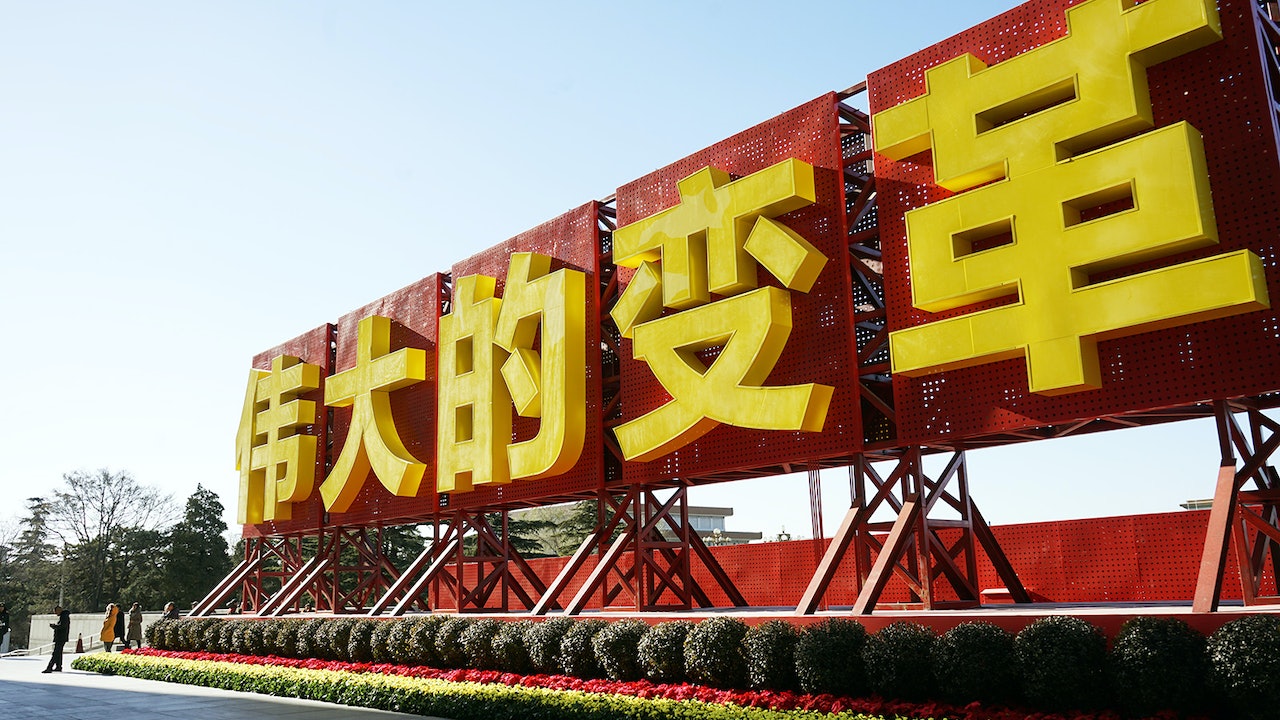Introduction: On February 7th, Beijing time, Xi Jinping continued the report of the 20th National Congress of the Communist Party of China at the opening ceremony of the seminar on the spirit of the 20th National Congress of the Communist Party of China, and delivered a speech on how to correctly understand and vigorously promote Chinese-style modernization.
In his speech, Xi Jinping reiterated the characteristics of the five aspects of Chinese-style modernization (modernization with a huge population, modernization with common prosperity for all people, modernization with harmonious material and spiritual civilization, modernization with harmonious coexistence between man and nature, and peaceful development. road to modernization), and bluntly stated that Chinese-style modernization breaks the myth of "modernization = Westernization", presents another picture of modernization, expands the path choices for developing countries to modernize, and provides human beings with a better social system. The Exploration offers Chinese programs.
When it comes to "modernization", many Chinese are familiar with it.
Because since the Opium War, China, which was knocked open by the strong ships and guns of the West, has been seeking modernization with difficulty under the "stimulus-response" mode.
From the modernization of utensils in the Westernization Movement, to the modernization of the system in the Reform Movement of 1898, to the cultural roots of the May Fourth Movement, the modern history of China is not only a history full of wars and chaos, but also a history of exploring the road to Chinese-style modernization. history.
A few days ago, a reporter from "Hong Kong 01" interviewed Yao Yang, dean of the National School of Development at Peking University, focusing on issues such as Chinese-style modernization and the Sinicization of Marxism.
The following is the second part of the interview.
Interview with Yao Yang from Peking University|Chinese-style modernization declares that the "Chinese model" is here?
Hong Kong 01:
In the article, you specifically talked about the Sinicization of the Chinese Communist Party, and how Deng Xiaoping led the Chinese Communist Party to return to China after the reform and opening up, such as the repositioning of class struggle and the change of the party’s tasks. The party's transformation from social transformation to economic construction is guided by the Chinese pragmatism philosophical tradition.
At present, the Communist Party of China has been a hundred years old. If we follow the path of Sinicization of Marxism, what stage is the Sinicization of the Communist Party of China at?
How will the Chineseization continue in the future?
What enlightenment does this have for the outside world to understand the Chinese Communist Party?
Yao Yang:
This is a big problem. My overall judgment is that the Chinese Communist Party’s Sinicization is moving much faster at the practical level than at the theoretical level. In other words, at the practical level, a large part has returned to China, such as pragmatic Doctrine, meritocracy, restoration of the market economy, etc. are all manifestations of the Sinicization of the Communist Party of China, but at the theoretical level, it faces the problem of re-transformation.
I personally believe that the most fundamental problem in contemporary China is that the theory of the Communist Party of China is far behind the practice of the Communist Party of China. This is the biggest challenge and the most fundamental challenge.
Yao Yang, Dean of the National School of Development, Peking University.
(Visual China/Data Picture)
Why do you say that?
Because the Chinese Communist Party is a political party that attaches great importance to theory, every important turning point is theory first. For example, during the Yan'an period, Mao Zedong wanted to write articles, and the reform and opening up launched after the Cultural Revolution also guided practice by theory.
The most important reason why current theory lags behind practice is that classic Marxist political economy is completely out of date.
The theoretical basis of Marxist political economy is the labor theory of value, and the next step of the labor theory of value is the theory of exploitation. In a country that originated from the proletarian revolution, the country has class attributes.
If you accept the exploitation theory of Marxist political economy, you must practice according to this logic, but obviously, we have not followed this set of theories in the past 40 years of reform and opening up.
What is the most important reason for our economic success?
It is not the theory of exploitation, not a single distribution according to work, but distribution according to factors, and it is the return of capital and labor that China has developed today.
Therefore, in building the basic economic system of China's socialism in the new era, we must absorb the valuable experience of reform and opening up and abandon the theory of exploitation.
Moreover, looking forward, the theory of exploitation is also not conducive to gathering the strength of all social strata across the country, and is not conducive to realizing the great rejuvenation of the Chinese nation.
In this way, the discussion on ownership should no longer have political significance, but should only have economic significance, that is, take efficiency as the main criterion for determining ownership.
But this does not mean that Chinese socialism will give up other goals, but to achieve common prosperity by improving the freedom and comprehensive development capabilities of the people through redistribution.
If we mechanically apply Marx's research on capitalist society to socialism, it is not seeking truth from facts, and it does not conform to Marx's historical materialism.
We must change, otherwise there will be more and more chaos, such as the discussion of "people's economy" that appeared some time ago, and the concerns caused by preventing the disorderly expansion of capital.
Hong Kong 01:
The debate over the advancement of the state and the retreat of the private sector is quite typical.
As a party of Marxism and communism, the Communist Party of China has not yet solved a theoretical problem: whether to eliminate private ownership or not?
The concept of eliminating private ownership was of philosophical significance to Marx, and "eliminating" capitalism does not mean that "capital" as a factor of production will also be banned after a period of time.
Yao Yang:
Yes, the debates about the advancement of the state and the retreat of the people are all in the same line. This is related to our understanding of the basic economic system. This issue is too important, and the high-level leaders are aware of this issue, but how to move forward is a question. Difficult task.
The most difficult thing is not what kind of theory to construct, but whether you have the courage to abandon theories that are no longer suitable for China's development stage.
If this step is not taken, China's basic political and economic system will remain unresolved, because the specific practice is completely inconsistent with the theory floating in the air, everyone will feel nervous, and social thinking will inevitably be confused.
In the historical tide of the past forty years, Nian Guangjiu, the founder of "Fool's Melon Seeds", has been imprisoned three times, married four times, experienced ups and downs, and is full of legend.
On January 11, 2023, Nian Guangjiu passed away.
(Source: VCG)
Hong Kong 01:
Regarding practice lagging behind theory, you also specifically talked about the tension between practice and theory in the chapter "The World Significance of Chinese Civilization" in your article.
Specifically, at the theoretical level, sinicization has just started, and it is very difficult for the party’s theory to return to Chinese tradition. After all, anti-tradition was the dominant ideology of the Chinese revolution in the 20th century. At the starting point of the final sprint stage of realizing the great rejuvenation of the Chinese nation, it is time to take Chinese tradition seriously at the theoretical level.
Can it be understood that the crux of the "tension between party practice and party theory" you mentioned lies in the failure to face the Chinese tradition?
In 2012, the report of the 18th National Congress of the Communist Party of China put forward the "Three Confidences", which were later added to the cultural self-confidence. How to understand the relationship between these self-confidence?
Where is the key to cracking the tension between party practice and party theory?
Yao Yang:
The report of the 20th National Congress of the Communist Party of China put forward a general direction, which is also the direction that China as a whole, especially the theoretical circle of the party, should strive for. But the problem is that our current theory is still in the revolutionary discourse system, and there is no way to jump out of it.
So this report specifically raises the issue of China's excellent traditional culture. I think it is meaningful. I hope everyone can break away from the old theories and rethink the party's theories.
To create a new theory, it is necessary to sublate some old theories, but we can't do it now, so we can only continue to stack up.
But this will hinder our way forward. For example, if we don’t give up class struggle, let’s not talk about common prosperity.
Interview with Yao Yang from Peking University|Chinese-style modernization declares that the "Chinese model" is here?
The Two Sessions|Only 2 of the top officials in Xinjiang are from Shandong, accounting for one-fifth of them. Zhu Yunhan, followed by Jiangsu, Zhejiang and Fujian, warns the Chinese academic circles: Don’t be a vassal and objectify China fierce competition









